In Yucatán, the launch of the “Safety at Sea” program, which delivers life jackets and radio communication equipment to fishermen, has revealed that some beneficiaries sell the equipment received instead of preventing risks on the high seas. In these cases, local authorities threaten penalties to curb this practice.
The initiative announced in June allocates 50 million pesos so that these inputs reach 12,000 fishermen and more than four thousand boats, however, the authorities noticed that once these vests and radios were delivered, they were offered in the local market at prices ranging from 200 to 300 pesos per vest, as well as for two thousand pesos per radio.

The program is active in the coastal municipalities of Yucatán. Source: Government of Yucatán.
Upon receiving the first reports, Governor Joaquín Díaz Mena urged fishermen to keep their equipment.
“With a vest you can have the difference between life and death. With their radios, they will be able to report their loss if necessary,” he said.
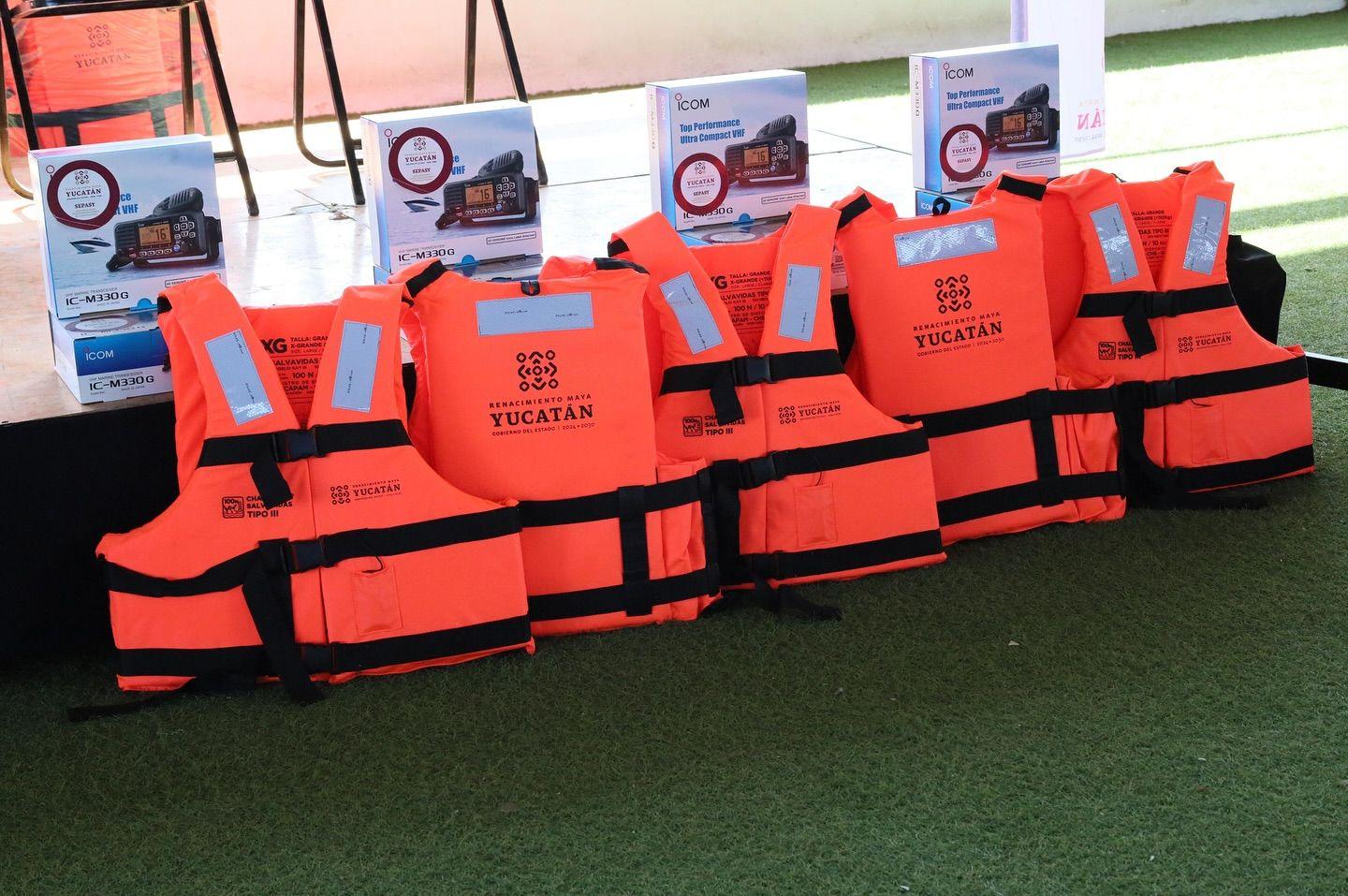
Each fisherman received a vest and a radio was distributed per boat. Source: Government of Yucatán.
The Secretary of Sustainable Fisheries and Aquaculture of Yucatán (Sepasy), Lila Frías, confirmed that operations are being carried out to detect and stop the resale of equipment granted by the state government.
“We are taking administrative action to identify cases and if we know of someone who is getting rid of the equipment, if sufficient evidence is collected we can take legal action. These are people who don't need this social support and who don't give it priority to safeguarding their lives,” he said.
Each radio has a code linked to the vessel that received it and with this registration, the Port Authority detects if it is used on the corresponding ship.
“If a radio is used on another boat we can see it and the important thing is for fishermen to remember that this program was implemented to safeguard their lives, especially during hurricane seasons,” said Frías.
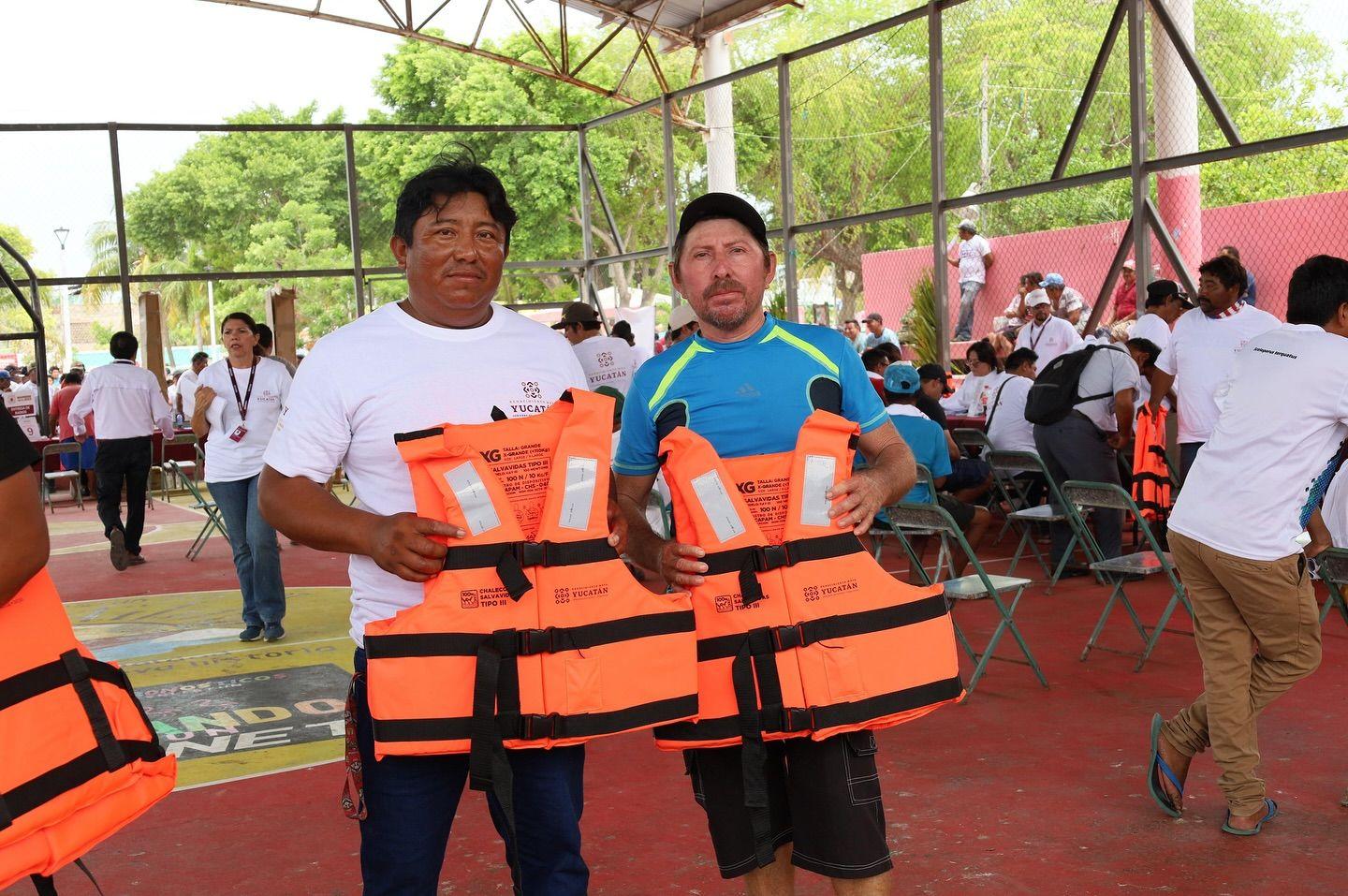
Fishermen received equipment at public events. Source: Government of Yucatán.
There is a lack of a culture of prevention
José Luis Carrillo, president of the Mexican Confederation of Fisheries and Aquaculture Cooperatives (Conmecoop), highlighted the importance of having safety equipment, but regretted that there is not a sufficient culture of prevention to use them.
“Sometimes they rarely use vests on boats because it makes it difficult for them to work. As they are people who have been doing this for many years, they believe that they will not need it. But it's time for fishermen to begin to understand the preventive part and that is to focus on the use of safety equipment and always have one,” he said.
Carrillo insisted that a vest is decisive in a shipwreck and that the state government should accompany the delivery of equipment with survival training on the high seas.
According to NOM-EM-001-SEMAR-2023, boats smaller than 15 meters in length must have safety equipment such as rings and life jackets, first aid kit, portable fire extinguisher, radio communication and other elements that guarantee compliance with a protocol to request support in case of emergency. However, the mandatory use of a life jacket offshore is not detailed, much less penalties if they do not have one on the boat.
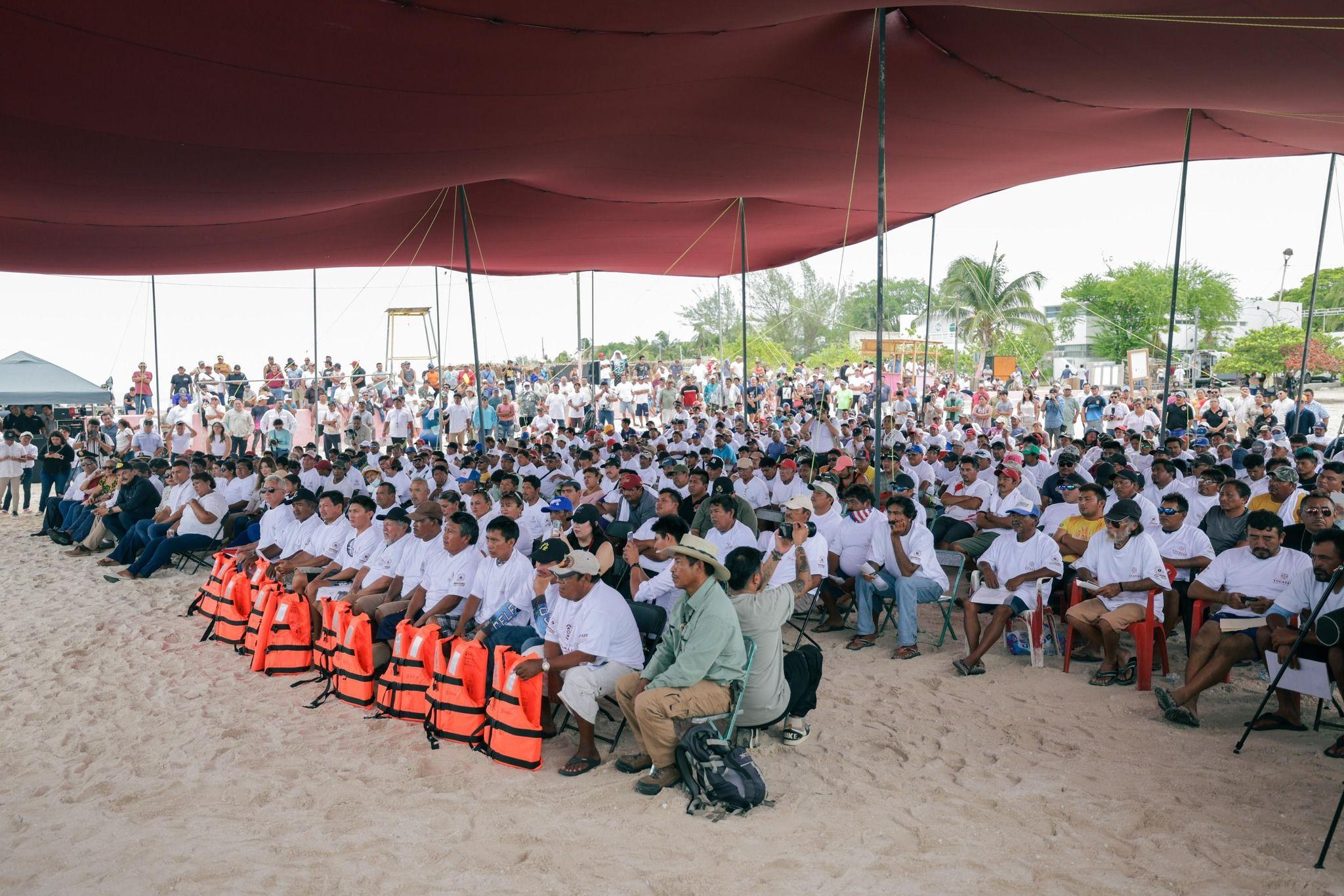
The majority of the fishing crew is made up of men. Source: Government of Yucatán.
Celestún is the fishing port where nearly 1,500 vests were distributed, where the municipal fishing director, Carlos Andrés Gómez Chuc, said that there have been cases of sale of safety equipment delivered by state authorities.
“There are people in the municipality who sold their vests and if we see it badly that if they give them support for survival that they sell it later. We have also noticed that they are mostly people who have vices who sell their vests for a few pesos,” he said.
For him, the solution could be to condition other benefits, such as the “Respect for the Veda” program, which provides economic support in times of prohibition of fishing in 106 municipalities of the state, and thus granting these transfers only if the fishermen present their vest in good condition.
“One measure that is fair to me is that when they are given financial support during closed periods, that fishermen present their vest and their INE, in this way the person guarantees that they do work, that they take care of the equipment and need the support,” he described.
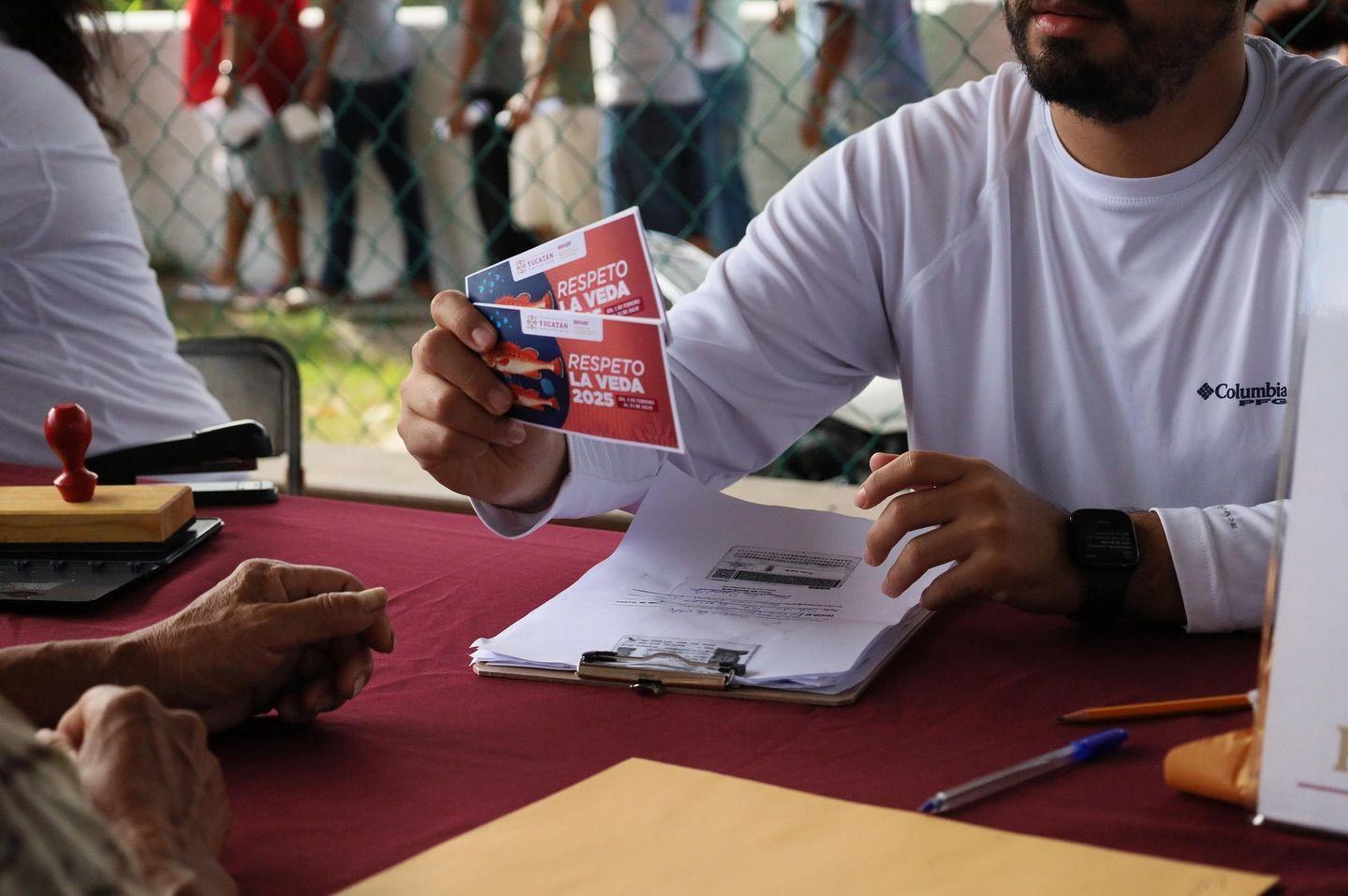
During the closed period, fishermen receive financial support of six thousand pesos. Source: Government of Yucatán.
Urgent training and awareness-raising campaign
Nine out of 10 fishermen neglect their safety and see the vest as a hindrance, while two out of 10 boats leave without a radiolocator, according to surveys conducted by Delfín Quesada Domínguez, a researcher at the Faculty of Anthropological Sciences of the Autonomous University of Yucatán (UADY).
“Sometimes they think that this equipment is not so necessary when it is very important, especially in shipwrecks,” he said.
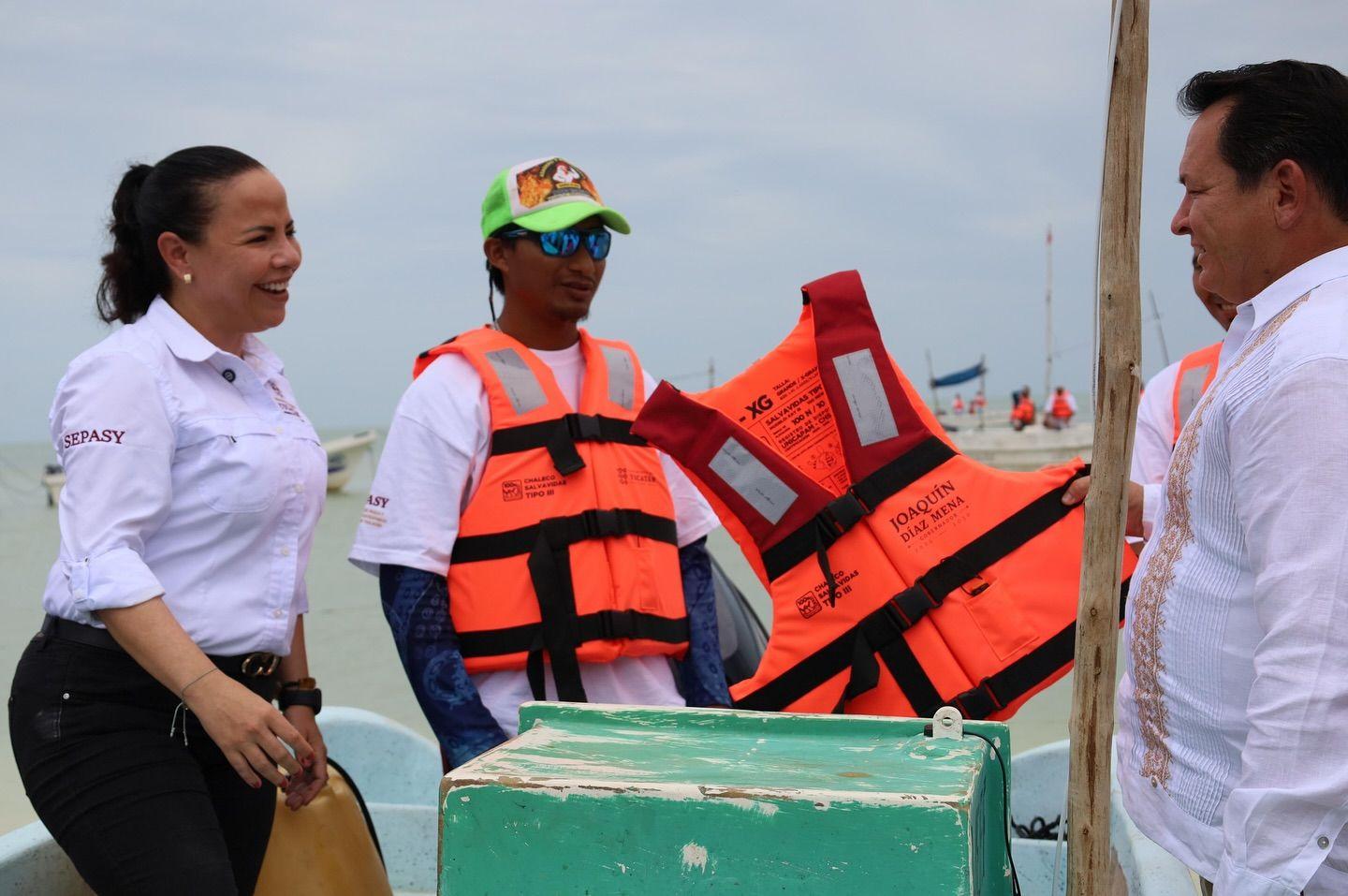
The goal of the “Safety at Sea” program is to save lives. Source: State Government.
Quesada acknowledged that the precariousness in which fishermen live leads them to make desperate decisions such as selling a vest to have a day's worth of food.
“For example, if there is no fishing, then they sell them to have at least one day's worth of food insured. Another reason that leads some to sell their security equipment is to pay their bills in bars and canteens,” he said.
Because of this situation, the researcher questioned the effectiveness of the “Safety at Sea” program and considered that a strong awareness campaign is necessary about the importance of taking care of yourself when going out to sea.
“There must also be a campaign that makes them understand that safety is important. Training is also urgently needed on safety protocols that they must follow. When they take out their passbook from the sea, they have a course, but these must be continuous,” he said.
* This article was written by Itzel Chan, who covers coastal communities thanks to the support of the Report for the World program .
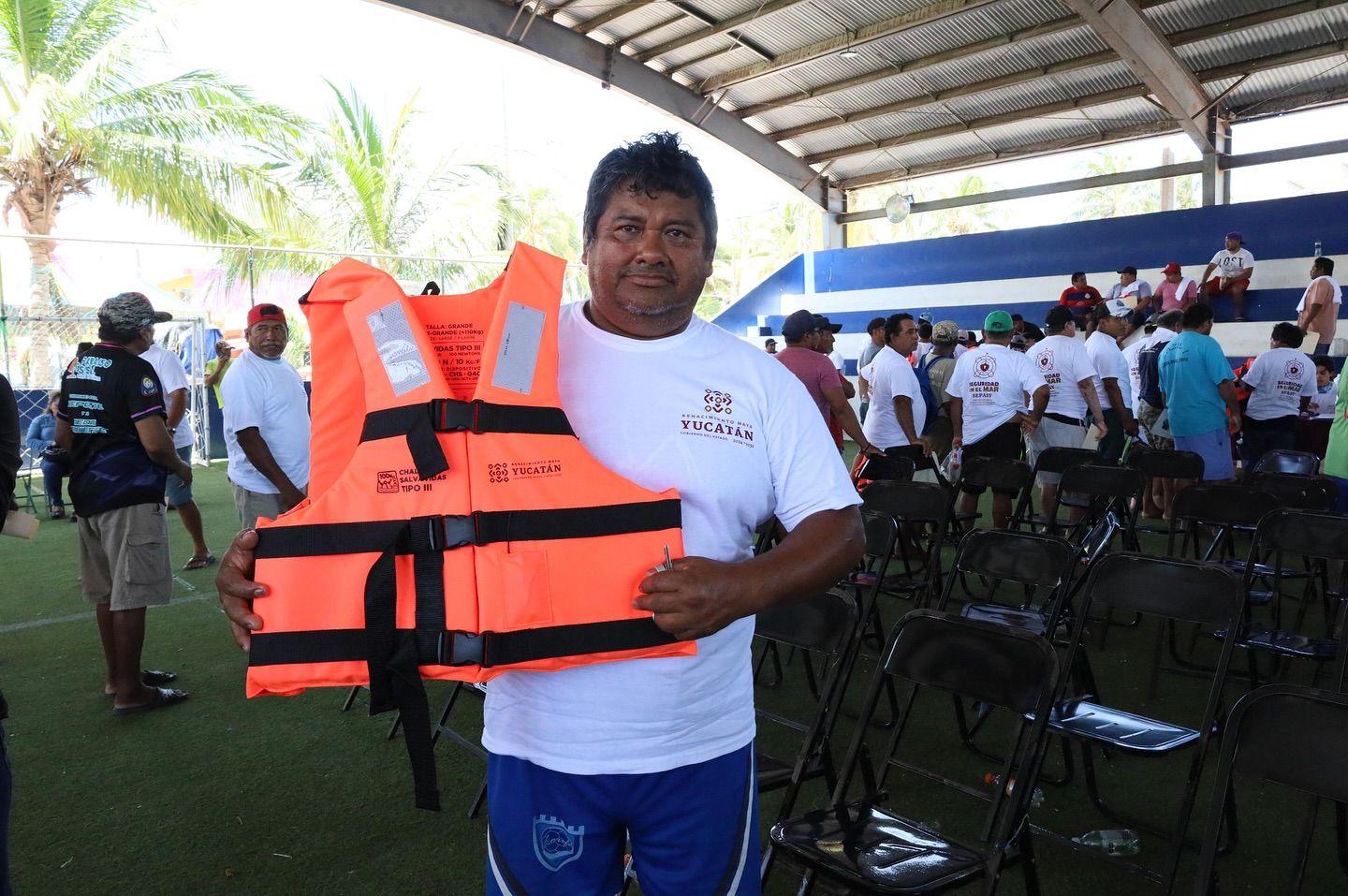
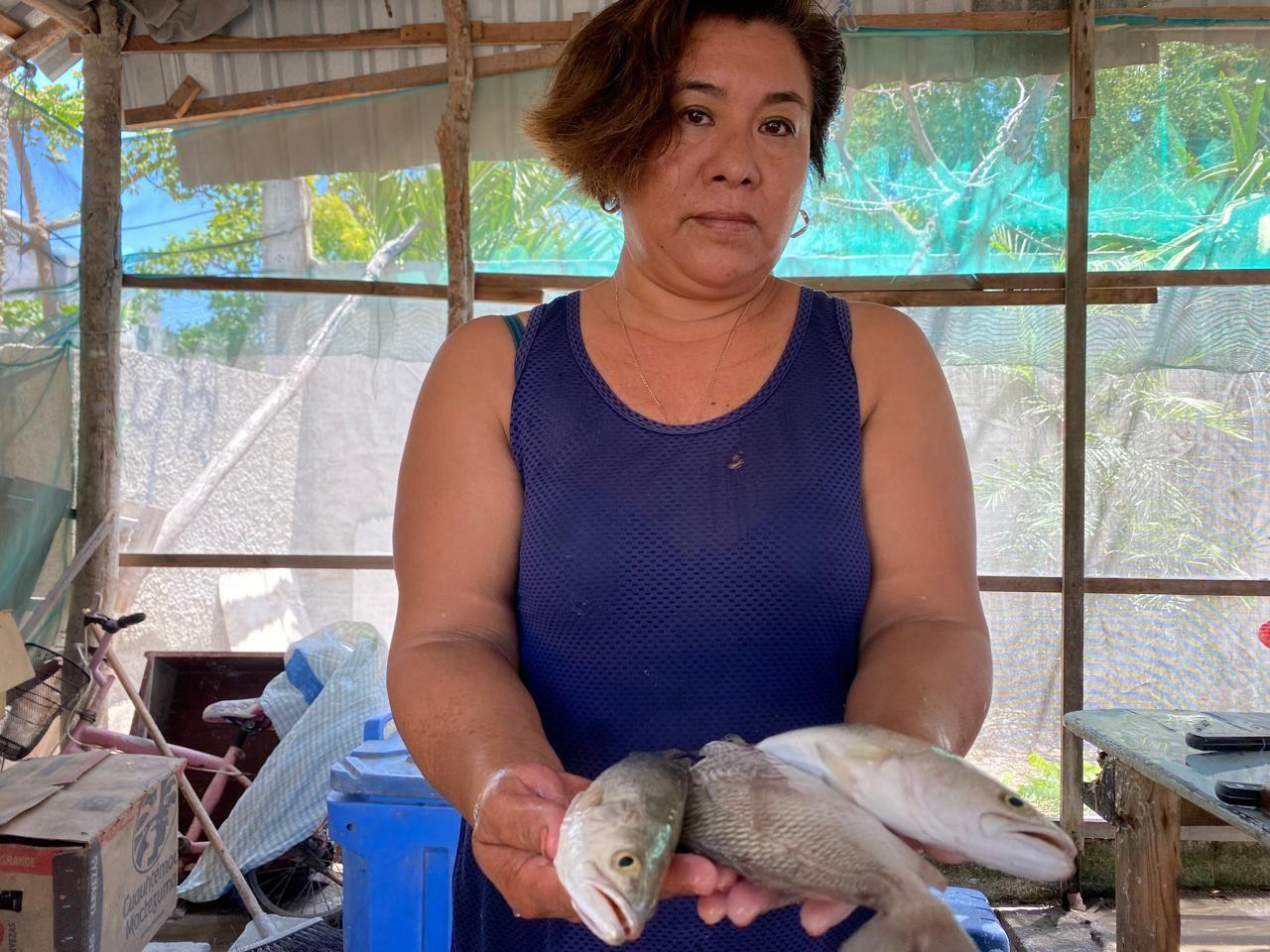


Comentarios (0)